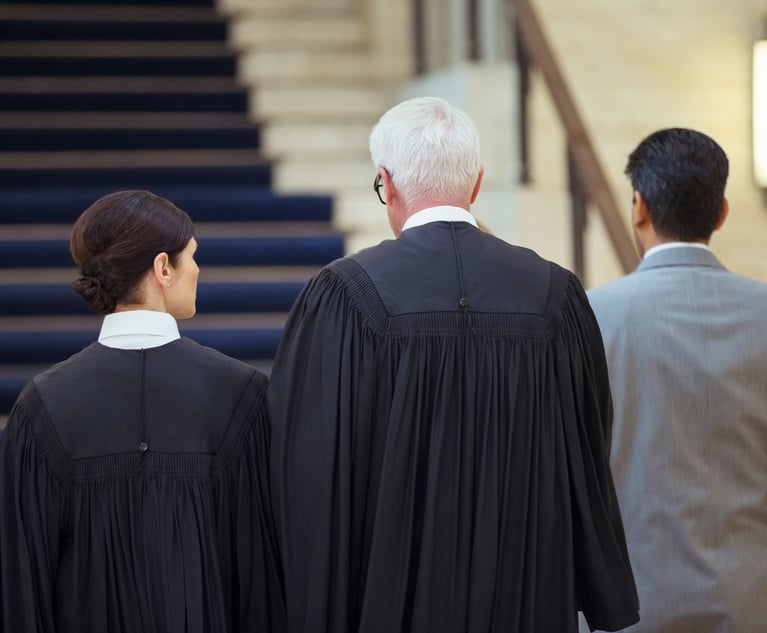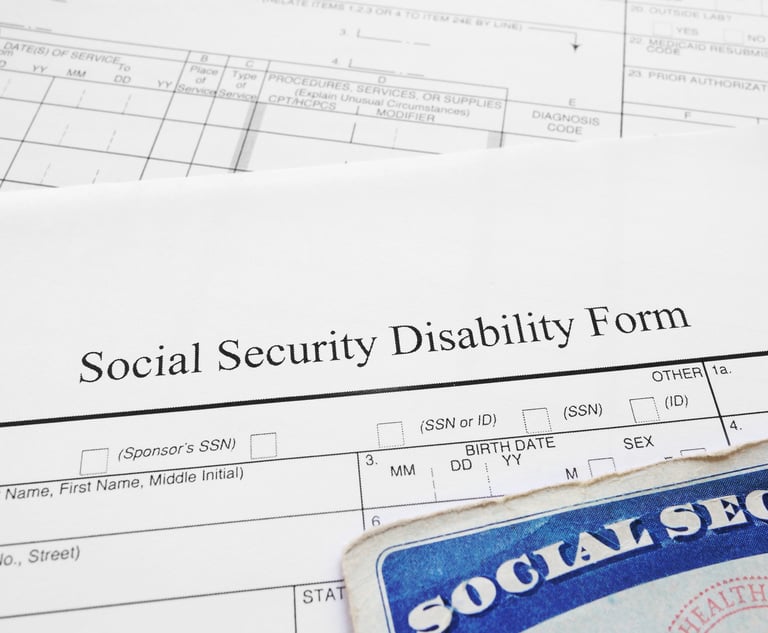Judicial Ethics Opinion 20-31
May a judge may teach a law school course based on a now-concluded homicide trial in his/her jurisdiction?
May 28, 2020 at 06:35 AM
5 minute read
The Advisory Committee on Judicial Ethics responds to written inquiries from New York state's approximately 3,600 judges and justices, as well as hundreds of judicial hearing officers, support magistrates, court attorney-referees, and judicial candidates (both judges and non-judges seeking election to judicial office). The committee interprets the Rules Governing Judicial Conduct (22 NYCRR Part 100) and, to the extent applicable, the Code of Judicial Conduct. The committee consists of 27 current and retired judges, and is co-chaired by former associate justice George D. Marlow of the Appellate Division and the Honorable Margaret Walsh, a justice of the Supreme Court.
Digest: A judge may teach a law school course based on a now-concluded homicide trial in his/her jurisdiction only if the time for appeals is exhausted and no related matters are pending or reasonably foreseeable. In teaching the class, the judge may only use materials from the public record.
Rules: 22 NYCRR 100.0(U)-(V); 100.2; 100.2(A); 100.3(B)(8); 100.3(B)(11); 100.4(A)(1)-(3); 100.4(B); Opinions 16-178; 14-26; 13-82; 12-126; 11-77; 10-206; 10-189; 10-153; 04-110; 01-03; 97-132; 95-105.
Opinion:
A full-time judge asks if he/she may teach a law school course that would provide students with a holistic view of an actual homicide trial the judge presided over and tried to verdict. The judge would select a case in which the appeals process has been exhausted and would only disseminate materials that are part of the public record. For example, the judge would not disclose grand jury minutes and would redact documents appropriately as needed. During the course, students would review and analyze discovery, draft and argue pre-trial suppression motions, and prepare opening and closing arguments.
A judge must always avoid even the appearance of impropriety (see 22 NYCRR 100.2) and must always act to promote public confidence in the judiciary's integrity and impartiality (see 22 NYCRR 100.2[A]). A judge may engage in extra-judicial activities such as teaching, provided that such activities are not incompatible with judicial office and do not (1) cast reasonable doubt on the judge's capacity to act impartially; (2) detract from the dignity of judicial office; or (3) interfere with the proper performance of judicial duties (see 22 NYCRR 100.4[A][1]-[3]; 100.4[B]). A judge may not, however, make any public comment on a matter that is "pending or impending" in any court in the United States or its territories (22 NYCRR 100.3[B][8]), including "one that is reasonably foreseeable but has not yet been commenced" (22 NYCRR 100.0[V]).
Preliminarily, we reaffirm our well-established but very narrow exception to the public comment rule: it is permissible when a judge is teaching a regular course of study at a law school or college (compare Opinions 10-189 [law school course]; 95-105 [university course on criminal justice, punishment, sociology of law, and criminology] with Opinions 11-77 [CLE program]; 01-03 [panel discussion]; 97-132 [single lecture at law school]). The exception is strictly limited to situations where the judge, as teacher of a regular course of study, wishes to comment in the classroom on a pending or impending case arising in another jurisdiction (see Opinions 13-82; 11-77; 10-189). Because this "regular course of study" exception does not permit comment on pending or impending cases arising in that judge's court or in a court within the judge's jurisdiction (see e.g. Opinions 13-82; 12-126; 10-189), and this judge wishes to use a case in which he/she personally presided, the key question is whether the case is "pending or impending" within the meaning of the public comment rule.
A pending proceeding is one that has begun but has not yet reached final disposition, and an impending proceeding is one that is reasonably foreseeable but has not yet been commenced (see 22 NYCRR 100.0[U]-[V]; Opinion 10-206). In essence, the "prohibition lasts as long as the case is 'pending or impending' in any respect" (Opinion 16-178). This means "at least until the time for appeals has expired and often longer" (Opinions 13-82; 10-153). A matter is pending or impending even after the original trial is complete if any appeal, collateral proceeding, parole hearing, or other proceeding in the case is pending or likely (see Opinion 10-206).
Thus, for example, in Opinion 13-82, we said a judge may not teach a law school course analyzing a highly publicized local criminal case while a closely related civil case remains pending. Likewise, "a judge may not comment even on previously decided aspects of a matter that have been rendered moot, because the 'case remains pending, regardless of the disposition of a particular issue and that suffices to maintain the prohibition against public comment'" (Opinion 14-26 [citation omitted]). Conversely, a judge may publicly discuss a case where the appeals process has been exhausted and there has been no litigation involving the matter for five years (see Opinion 04-110).
Here, the inquiring judge may teach the proposed law school course provided he/she selects a case that is not "pending or impending" in any respect, the appeals process in the case has been exhausted, and the judge is satisfied that no related matters are pending or reasonably foreseeable. In teaching the class, the judge must only provide students with materials from the public record. The judge must not disclose or use grand jury minutes or other nonpublic materials, even if he/she would redact them for pedagogical purposes (cf. 22 NYCRR 100.3[B][11] [a judge "shall not disclose or use, for any purpose unrelated to judicial duties, nonpublic information acquired in a judicial capacity"]).
This content has been archived. It is available through our partners, LexisNexis® and Bloomberg Law.
To view this content, please continue to their sites.
Not a Lexis Subscriber?
Subscribe Now
Not a Bloomberg Law Subscriber?
Subscribe Now
NOT FOR REPRINT
© 2024 ALM Global, LLC, All Rights Reserved. Request academic re-use from www.copyright.com. All other uses, submit a request to [email protected]. For more information visit Asset & Logo Licensing.
You Might Like
View AllTrending Stories
- 1Call for Nominations: Elite Trial Lawyers 2025
- 2Senate Judiciary Dems Release Report on Supreme Court Ethics
- 3Senate Confirms Last 2 of Biden's California Judicial Nominees
- 4Morrison & Foerster Doles Out Year-End and Special Bonuses, Raises Base Compensation for Associates
- 5Tom Girardi to Surrender to Federal Authorities on Jan. 7
Who Got The Work
Michael G. Bongiorno, Andrew Scott Dulberg and Elizabeth E. Driscoll from Wilmer Cutler Pickering Hale and Dorr have stepped in to represent Symbotic Inc., an A.I.-enabled technology platform that focuses on increasing supply chain efficiency, and other defendants in a pending shareholder derivative lawsuit. The case, filed Oct. 2 in Massachusetts District Court by the Brown Law Firm on behalf of Stephen Austen, accuses certain officers and directors of misleading investors in regard to Symbotic's potential for margin growth by failing to disclose that the company was not equipped to timely deploy its systems or manage expenses through project delays. The case, assigned to U.S. District Judge Nathaniel M. Gorton, is 1:24-cv-12522, Austen v. Cohen et al.
Who Got The Work
Edmund Polubinski and Marie Killmond of Davis Polk & Wardwell have entered appearances for data platform software development company MongoDB and other defendants in a pending shareholder derivative lawsuit. The action, filed Oct. 7 in New York Southern District Court by the Brown Law Firm, accuses the company's directors and/or officers of falsely expressing confidence in the company’s restructuring of its sales incentive plan and downplaying the severity of decreases in its upfront commitments. The case is 1:24-cv-07594, Roy v. Ittycheria et al.
Who Got The Work
Amy O. Bruchs and Kurt F. Ellison of Michael Best & Friedrich have entered appearances for Epic Systems Corp. in a pending employment discrimination lawsuit. The suit was filed Sept. 7 in Wisconsin Western District Court by Levine Eisberner LLC and Siri & Glimstad on behalf of a project manager who claims that he was wrongfully terminated after applying for a religious exemption to the defendant's COVID-19 vaccine mandate. The case, assigned to U.S. Magistrate Judge Anita Marie Boor, is 3:24-cv-00630, Secker, Nathan v. Epic Systems Corporation.
Who Got The Work
David X. Sullivan, Thomas J. Finn and Gregory A. Hall from McCarter & English have entered appearances for Sunrun Installation Services in a pending civil rights lawsuit. The complaint was filed Sept. 4 in Connecticut District Court by attorney Robert M. Berke on behalf of former employee George Edward Steins, who was arrested and charged with employing an unregistered home improvement salesperson. The complaint alleges that had Sunrun informed the Connecticut Department of Consumer Protection that the plaintiff's employment had ended in 2017 and that he no longer held Sunrun's home improvement contractor license, he would not have been hit with charges, which were dismissed in May 2024. The case, assigned to U.S. District Judge Jeffrey A. Meyer, is 3:24-cv-01423, Steins v. Sunrun, Inc. et al.
Who Got The Work
Greenberg Traurig shareholder Joshua L. Raskin has entered an appearance for boohoo.com UK Ltd. in a pending patent infringement lawsuit. The suit, filed Sept. 3 in Texas Eastern District Court by Rozier Hardt McDonough on behalf of Alto Dynamics, asserts five patents related to an online shopping platform. The case, assigned to U.S. District Judge Rodney Gilstrap, is 2:24-cv-00719, Alto Dynamics, LLC v. boohoo.com UK Limited.
Featured Firms
Law Offices of Gary Martin Hays & Associates, P.C.
(470) 294-1674
Law Offices of Mark E. Salomone
(857) 444-6468
Smith & Hassler
(713) 739-1250










